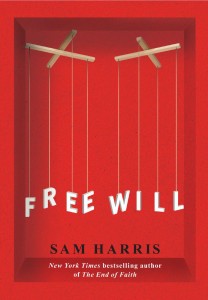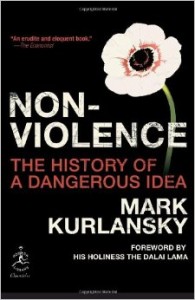 In his book Evil, psychologist Roy Baumeister busts what he calls the myth of pure evil, the idea that evil is,
In his book Evil, psychologist Roy Baumeister busts what he calls the myth of pure evil, the idea that evil is,
the intentional and gratuitous infliction of harm for its own sake, perpetrated by a villain who is malevolent to the bone, inflicted on a victim who is innocent and good.
We see depictions of this sort of evil all the time in horror films, fairytales, news coverage and statements by global political leaders who are seeking to justify yet another dalliance in a foreign country.
Despite its ubiquity and its effectiveness at glazing over the eyes of the masses, according to Baumeister and experimental psychologist Steven Pinker, author of The Better Angels of Our Nature, this depiction of evil is a myth, because,
when seen through psychological spectacles, evil in fact is perpetrated by people who are mostly ordinary, and who respond to their circumstances, including provocations by the victim, in ways they feel are reasonable and just.
In other words, while we tend to view the evil we commit as necessary, limited, preventative, preemptive, even compassionate–if done on behalf of victims–we portray the evil our enemies commit as barbaric, excessive, indiscriminate and unprovoked. Meanwhile, our enemies feel exactly the same way about the evil they commit and vice versa. Hence, nearly every conflict essentially boils down to competing victim narratives, with each side seeking to justify its “virtuous” actions in the face of the enemy’s obvious villainy.
The problem with the myth of pure evil, according to Pinker and Baumeister, is that it “bedevils our attempts to understand real evil.” If we see evil as an inherent quality of particular individuals or people groups, rather than a self-justifying tendency toward self-preservation inherent to all human beings, we become blind to the horrors we commit every day for the sake of the good.
Oftentimes, our blindness is merely that, an inability to see the true motives of our actions. At other times, those in power play to this tendency by employing tactics specifically designed to reduce the cognitive dissonance we experience when confronted with the full scope of the “necessary” evils we commit.
These tactics include euphemisms like “collateral damage,” “incontinent ordnance” or “surgical strike.” Gradualism–a slow, steady immersion into a type of behavior that would be considered abhorrent if engaged in immediately–is also effective. First we send in military advisors. Then we launch air strikes. Then we put boots on the ground, all the while expressing angst and regret about the need to escalate our involvement. Then there’s diffusion of responsibility. We don’t go it alone, for fear of being scapegoated once the true extent of our violence becomes known. Therefore, we form coalitions, at least on paper, ostensibly so we can share the credit and the burden of responsibility for keeping the world safe, but primarily so we can share the blame after the fact when the true motives for this conflict (which are almost always a far cry from the stated motives) become known.
A fourth tactic is distancing, restricting ourselves to a long-distance, push button war in order to reduce psychological trauma. As Pinker says,
It’s safe to say that the pilot of the Enola Gay who dropped the atomic bomb over Hiroshima would not have agreed to immolate a hundred thousand people with a flamethrower one at a time.
Whether the pilot was willing or not, the effects of his actions were the same. This is why we often find the tactics of our enemies so shocking. They seem to have no psychological need for distancing, which is terrifying, and perhaps the only true difference between us and them.
The final tactic is to derogate or demonize the target, which is where the myth of pure evil comes in.
The myth of pure evil derives most of its power from another fallacy–the myth of the autonomous individual, a.k.a. the myth of free will. The alternative is not fatalism or pure determinism, as many believe. Rather, to take a page out of the book of family systems therapy, a more accurate way to understand the causality of human behavior is to view individuals as the product of systems. In this view, sick people are the product of sick systems rather than isolated repositories of wickedness. Those whom we label as pure evil are merely those most susceptible to whatever dysfunction has beset the system. Unable to bear up under the stress, they act out in ways that are unthinkable and horrifying. When confronted with such behavior, instead of seeking to understand what is truly causing it–and the role we may have played in the individual’s dysfunction–we tend to point the finger and then isolate or eliminate the individual or group as if they were a cancerous tumor (i.e. “the cancer of violent extremism”) rather than a signal that our body’s entire immune system has turned against itself.
 Neuroscientist and philosopher Sam Harris articulates a similar view of causality in his book Free Will.
Neuroscientist and philosopher Sam Harris articulates a similar view of causality in his book Free Will.
The idea that we as conscious beings are deeply responsible for the character of our own minds is just impossible to map onto reality. And if we want to be guided by reality–rather than the fantasy life of our ancestors–I think our views on this topic have to change.
Some of you might think this sounds very depressing. This seems to take something away from us. And it’s true. It takes away an egocentric view of life. But I think this can be liberating. We are not truly separate; we are linked to each other. And to our past and to history. We are part of system, and, therefore, what we do matters.
You can’t take credit for your talents, but it really matters if you use them. You can’t really be blamed for your weaknesses and your failings, but it matters if you correct them. Pride and shame don’t make a lot of sense in the final analysis. But they were no fun anyway. These are isolating emotions. What does make sense are things like compassion and love: caring about well-being makes sense; trying to maximize your well-being and the well-being of others makes sense… All of that still makes sense without free will.
As much as I side with Harris on this one, I don’t think think many of us really want to abandon the myth of pure evil (or the myth of free will for that matter) even in the face of evidence that so clearly contradicts it. These myths are simply doing too much work in the world–politically, tactically and emotionally. However, as long as we persist within the reality distortion field that the myth of pure evil creates, we will continue to run aground on the rocks of reality–and be led astray by those who would use our blindness in this area for their own ends. One day we will wake up and realize our quixotic quest to vanquish the chimera of pure evil has brought us toe to toe with real evil, the face of which will be no further away than the closest mirror.










